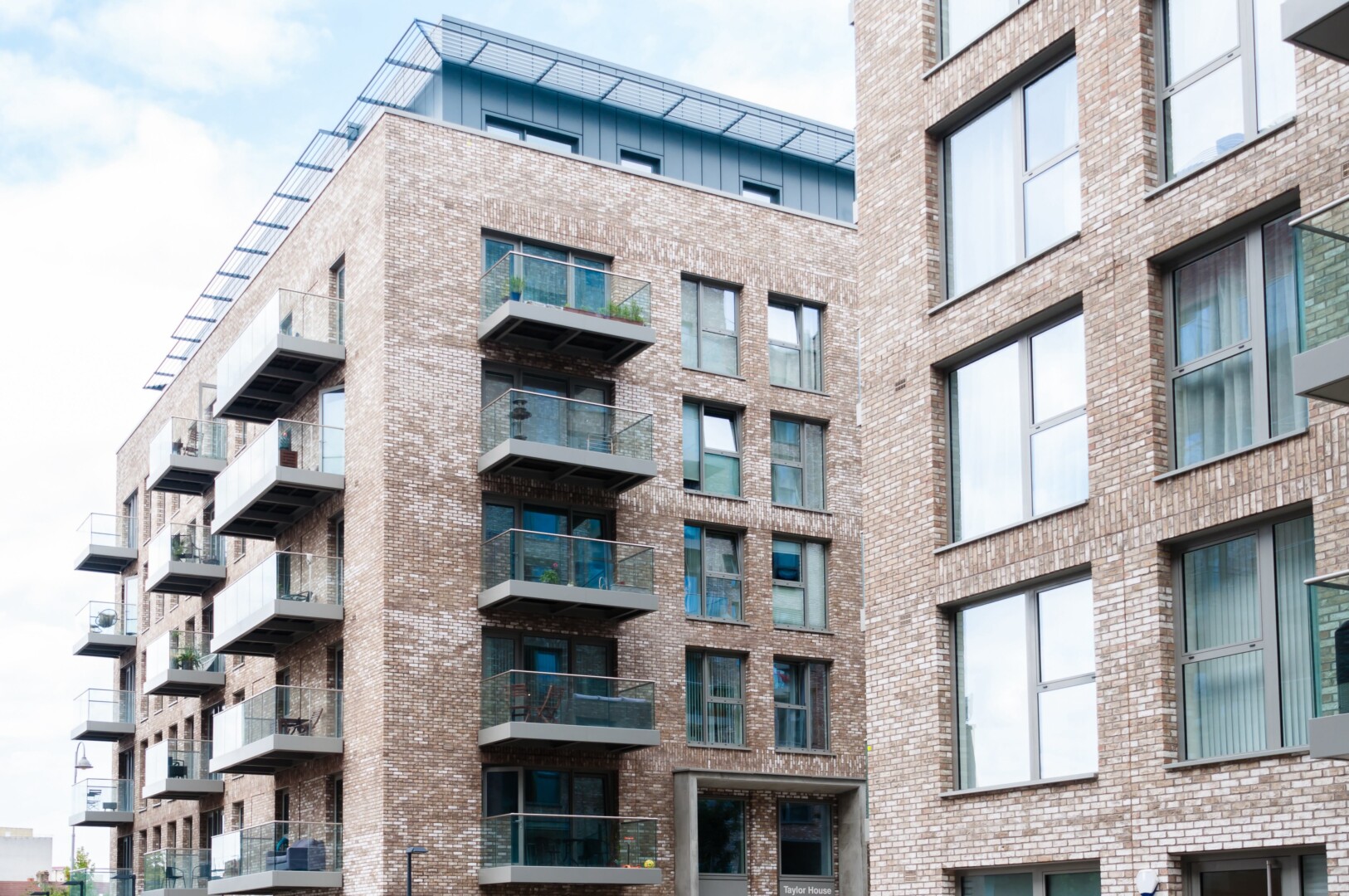Offering steady income, potential for big profits, and a tangible asset you can walk right into, property investment has a host of benefits. It’s a popular form of investment because it offers the potential for both steady rental income and long-term capital appreciation.
But which type of property investment is best for you? This article will guide you through the strategies that could turn your real estate dreams into reality.
A Guide To Property Investment Strategies

Flexible Returns
Maximise income by adapting to market demand through long-term tenancies or short-term lets.
The Property Type For You: Buy-to-let
Buy-to-let is a property investment strategy where you purchase a property intending to rent it out to tenants. The long-term goal is often for the property value to appreciate, allowing you to sell it for a gain in the future.
WHAT WE LIKE
Buy-to-let offers a combination of benefits. Landlords enjoy steady rental income, control over the property, and potential tax breaks. Strong rental demand and the option for passive management and long-term capital appreciation make them a well-rounded investment. Additionally, buy-to-let provides flexible exit strategies, allowing you to sell for profit, use it for retirement income, or even pass it on as an inheritance.
FACTORS TO CONSIDER
While buy-to-let offers attractive benefits, it’s crucial to understand the potential hurdles. Due to the significant initial investment required, including deposit, stamp duty and legal fees, it is not the most accessible investment strategy. Additionally, if you have a buy-to-let mortgage, interest rate fluctuations can affect your monthly payments and squeeze your profit margins.

Low-Cost Entry
Leverage high occupancy rates and strong yields for a cost-effective investment.
The Property Type For You: Student accommodation
Investing in student accommodation offers a twist on the buy-to-let strategy. It caters to the ever-present accommodation demand from universities and colleges, offering investors a potentially lucrative and hands-off approach to real estate.
WHAT WE LIKE
Student accommodation offers a compelling property investment option. Steady student demand translates to high occupancy rates and potentially higher rental yields compared to traditional buy-to-let. Longer leases and professional management services can create a more passive income stream. Additionally, these properties can benefit from potential value appreciation in areas with growing student populations and limited housing options.
FACTORS TO CONSIDER
Student accommodation offers advantages as an investment strategy, but there are challenges to consider. While the steady student population translates to high occupancy rates and potentially lucrative rental yields, the initial investment can be a hefty hurdle. Unlike traditional buy-to-let, you’re often looking at property acquisition and development costs for purpose-built student accommodation (PBSA). This high entry point can be further complicated by market saturation in some areas. Even with high occupancy, vacancy concerns linger. Student life doesn’t follow a typical work schedule, and holiday breaks can mean periods without rental income. This means careful financial planning is crucial to weather these seasonal dips in cash flow.

Capital Growth and Income
Combine multiple rental incomes with potential property value increases.
The Property Type For You: HMO
HMO property investment focuses on acquiring houses with multiple occupants (hence “HMO”) to generate rental income. This strategy falls under the umbrella of buy-to-let investing, but rather than renting a property to one tenant, you’ll be managing many.
WHAT WE LIKE
HMO property investment offers a compelling income stream. By renting individual rooms, you can generate higher rental yields compared to traditional buy-to-let properties. This translates to a lower risk of income gaps, as even a single vacancy won’t significantly impact your cash flow. Beyond the steady income, HMOs hold the potential for significant capital gains. HMO investors also enjoy greater flexibility in rent adjustments, as individual rooms can be priced based on market demand. Additionally, tax benefits associated with HMO properties, such as deductions for maintenance and management costs, can further enhance your returns.
FACTORS TO CONSIDER
While HMOs are enticing for their income potential, they come with challenges that shouldn’t be overlooked. Navigating the regulatory maze of HMOs can be time-consuming and expensive, as licensing requirements vary greatly depending on your location. The initial investment is also typically higher due to the need to fully furnish individual rooms. Furthermore, managing an HMO is more demanding than a single-family rental. You’ll face frequent tenant turnover, mediate conflicts between roommates, and handle the upkeep of shared spaces. Finally, securing financing for HMOs can be an obstacle. Lenders often have stricter criteria and require larger deposits for HMO mortgages compared to traditional buy-to-let properties due to the perceived higher risk.

New Build, High Returns
Benefit from modern properties, strong rental demand, and reduced management.
The Property Type For You: Build-to-rent
Build-to-rent (BTR) investments offer professionally managed, amenity-rich rentals. They often target renters seeking a high-quality lifestyle experience. These communities go beyond just providing shelter, offering tenants a lifestyle experience with modern amenities, shared spaces that foster a sense of community, and the convenience of on-site property management.
WHAT WE LIKE
Build-to-rent investments offer a win-win for income and growth. Consistent rentals provide reliable cash flow, while the booming market suggests potential appreciation. High occupancy rates are driven by modern amenities, convenient locations, and flexible leases that attract renters. Build-to-rent also acts as a hedge against economic downturns, and with professional management and easy portfolio scaling, investor workload is minimised.
FACTORS TO CONSIDER
While build-to-rent investment offers attractive advantages, it has limitations. The initial investment can be substantial, limiting access for some. Returns take longer to materialise compared to flipping properties, and the evolving regulatory landscape, like the Renters (Reform) Bill, adds uncertainty. While professional management is a plus, high fees or unreliable companies can become burdens. Investors also relinquish control over decisions and tenant selection. Exiting the market can be difficult, especially when selling an entire development, and securing financing can be more complex due to the relative newness of the sector.

Hands-Off Investment
Invest in growing sectors with professional management and steady returns.
The Property Type For You: Co-living
The co-living market offers a unique opportunity for investors. Co-living is a housing arrangement where people share an apartment or house, but unlike traditional housemates in HMOs (houses in multiple occupations), co-living spaces prioritise communal living.
WHAT WE LIKE
Co-living offers compelling advantages for investors. The potential for strong rental income is high due to fitting more tenants in a space designed for shared living. ColivHQ suggests London co-living landlords see 30% higher yields than traditional rentals. Additionally, high demand in urban areas translates to reduced vacancy rates and a steadier income stream. Furthermore, co-living properties often come with on-site management, handling maintenance, cleaning, and even community events, freeing up the investor’s time. Finally, co-living spaces in developing areas have the potential for property value appreciation, offering capital gains alongside rental income.
FACTORS TO CONSIDER
Co-living offers exciting potential, but due diligence is key. As the market is up-and-coming, its resilience in economic downturns remains untested. Furthermore, though often offset by strong demand, high tenant turnover can be a concern. It’s also worth noting that financing co-living projects can be trickier compared to traditional properties, and evolving regulations might require operational adjustments, as seen in London’s recent restrictions.
Discover CO-LIVING PROPERTY INVESTMENT
The Property Type For You: Assisted Living
Assisted living properties cater to a rising demographic: seniors seeking independence with a safety net. These residences offer residents daily living assistance and support services, allowing them to maintain a high quality of life while receiving the care they need. This growing market presents a compelling opportunity for property investors.
WHAT WE LIKE
The ageing population creates a strong demand for assisted living properties, so investing in it is a promising strategy. These facilities offer long-term residency, providing a stable income stream. Seniors are also more reliable renters — studies show that elderly people are much less likely to miss rent payments in comparison to younger tenants. Assisted living investments exhibit resilience in economic downturns, with research suggesting less volatility in returns compared to other real estate sectors. Investors can also partner with experienced operators for management expertise, reducing hands-on involvement.
FACTORS TO CONSIDER
While certainly attractive, assisted living investments aren’t without challenges. The complexity of operations demands skilled staff and adherence to strict healthcare regulations, potentially impacting profits. High ongoing costs for staffing, utilities, and healthcare services add to the burden. Additionally, healthcare liabilities like malpractice claims pose a risk so staffing qualified caregivers is a priority and an additional cost.

Personal and Profitable
Enjoy your property while generating income through short-term rentals.
The Property Type For You: Holiday homes
Holiday homes, also known as vacation rentals, second homes, or short-lets, offer investors a unique property strategy. These properties cater to the leisure market, serving as temporary residences for individuals or families during holidays.
WHAT WE LIKE
Holiday homes offer a compelling investment opportunity. Popular destinations can bring high rental yields, exceeding traditional properties by an average of 0.5%. They also hold the potential for value appreciation, making them a sound long-term investment. But the benefits extend beyond money. You can use the property for personal getaways or even plan for a future retirement haven. As the owner, you have control over renovations and upgrades to maximise rental potential or personalise your enjoyment. Holiday homes can even be a lasting legacy, passed down through generations as a cherished family retreat. Finally, for the tax-conscious investor, qualifying as a furnished holiday letting (FHL) unlocks additional tax benefits.
FACTORS TO CONSIDER
While holiday homes offer potential, consider the ongoing costs (taxes, maintenance, utilities) that eat into profits. Income is seasonal, with peak periods balancing out potentially slow off-seasons. Furthermore, not every holiday home will be profitable. Location is crucial — a thriving tourist destination today could face economic downturns or changing tourism trends, impacting both rental income and property value.

Exclusive Deals
Access discounted properties with potential for high returns.
The Property Type For You: Off-market property
Traditionally, property investors rely on public listings to find investment opportunities. However, a growing strategy involves off-market properties. These are properties not advertised through standard channels like MLS or real estate websites. Instead, they are sold through private networks and connections.
WHAT WE LIKE
Off-market properties offer investors a distinct edge. Reduced competition means less chance of bidding wars, potentially leading to better deals. Plus, exclusivity grants access to unique properties not readily available. Both buyers and sellers benefit from privacy and discretion during the transaction and the direct negotiation process means terms are more likely to be aligned with their investment goals.
FACTORS TO CONSIDER
While off-market properties offer advantages, navigating them requires caution. Limited choices restrict your investment options, and access often hinges on established connections. You should conduct extra due diligence to compensate for the limited information associated with this strategy — strong local market knowledge is crucial to avoid these pitfalls.
Discover off-market PROPERTY INVESTMENT
The Property Type For You: Off-plan
Off-plan developments offer a unique opportunity for property investors. These are residential or commercial projects sold before construction even begins. Buyers commit to purchasing a property based on blueprints and developer plans, essentially investing in a future vision.
WHAT WE LIKE
Off-plan developments unlock a treasure trove of advantages for investors. Lower initial costs, typically 5% less than completed properties, offer an immediate financial edge. This, coupled with the potential for value appreciation between purchase and completion, creates a compelling profit opportunity. Early movers gain a distinct advantage by securing their preferred units in prime locations before they become widely available and potentially experience price hikes. This spread-out investment timeline allows investors to monitor market conditions and adjust their strategy if needed, potentially mitigating risks associated with market fluctuations.
FACTORS TO CONSIDER
While enticing, off-plan investments come with inherent risks. Construction delays can disrupt timelines, impacting rental income and resale plans and quality and design deviations may occur during construction, potentially falling short of expectations. Unlike completed properties, off-plan investments offer no immediate income stream, potentially challenging cash flow needs. Furthermore, securing financing can also be more difficult with this strategy due to perceived risks and the lack of a finished property as collateral.

Guaranteed Income
Invest in the hospitality sector for steady returns with lower risk.
The Property Type For You: Hotel rooms
Traditionally, hotel investment has been associated with buying an entire property. However, a unique opportunity exists for investors seeking a more affordable entry point — individual hotel rooms. With UK hotel demand on the rise, this strategy offers a potentially profitable way to start or diversify your property portfolio.
WHAT WE LIKE
Hotel room investment unlocks unique advantages for property enthusiasts. Compared to traditional options, it offers an affordable entry point, perfect for starting or diversifying your portfolio. Popular locations ensure a stable income stream, with high yields exceeding buy-to-let averages. As commercial property under £150,000, these investments are exempt from stamp duty, further enhancing affordability.
FACTORS TO CONSIDER
Hotel room investment comes with drawbacks. The industry’s sensitivity to economic downturns and travel disruptions can cause income fluctuations, as seen during the pandemic. Plus, hotel rooms have limited capital appreciation so most financial gains come from rental yields. Management fees eat into these profits, and high competition within the hospitality sector can squeeze margins.

Factors to consider when choosing a property investment strategy
With a range of differing strategies available, choosing the best property investment strategy for you can be overwhelming. Here are some key factors to consider before diving in, so you can feel confident in the strategy you choose.
- Your investment goals: Are you looking for a quick return through flipping properties, or aiming for a steady income stream through properties like buy-to-let rentals? Decide whether you want long-term or short-term returns.
- Your risk appetite: If you are comfortable with strategies that offer potentially higher returns, even if they come with a greater chance of loss, you might be drawn to off-plan developments. If you prioritise stability and security you might be a low-risk investor. You might be more interested in buy-to-let rentals.
- Your budget: Consider the upfront costs like purchase price, renovation expenses, and legal fees.
- The property market: Research current market trends — is the market experiencing growth, decline, or stagnation?
- The location: Research average rental yields in your target location to estimate potential income.

How to choose the right property
You’ve chosen your strategy, but now you’re faced with the next dilemma — how to choose the right property. Let’s take a look at some ‘must-dos’ we recommend considering when choosing your property.
- Conduct thorough market research: Understanding the local market is essential. Knowing average rental yields and property values will help you assess potential returns and identify good deals.
- Analyse a property’s location: Location significantly impacts a property’s value and rental potential. Consider factors like proximity to amenities, transportation links, crime rates and future development plans.
- Consider the property’s condition: The property’s condition directly impacts renovation needs and ongoing maintenance costs. Schedule a thorough inspection to assess structural integrity, the overall condition of the building and whether it’s compliant with regulations.
- Evaluate the property’s potential rental income: Rental income is a key factor in many investment strategies. Research average rental yields for similar properties in the area. Consider factors like the property size, number of bedrooms, and amenities offered when estimating potential rent.
Ready to start your property investment journey?
Choosing the right property investment strategy is a key step towards achieving your financial goals. This guide has equipped you with valuable insights into the investment strategies available, from buy-to-let to assisted living.
Here at Alesco, we leverage our extensive experience and market expertise to support your success. Whether you seek immediate returns, consistent rental income, or long-term capital growth, we can help you navigate your investment journey.
Contact us to find out more or to make an enquiry.

Written by: James Needham
Experienced Team Lead with a demonstrated history of working in the real estate industry.














